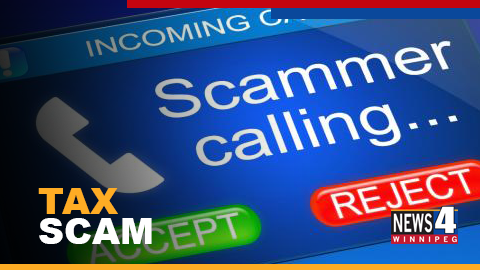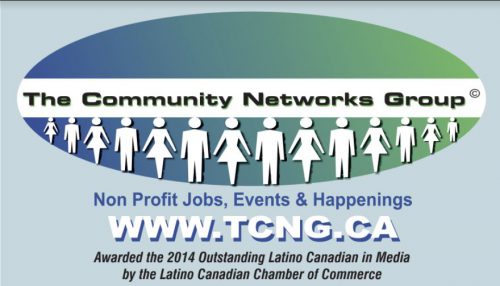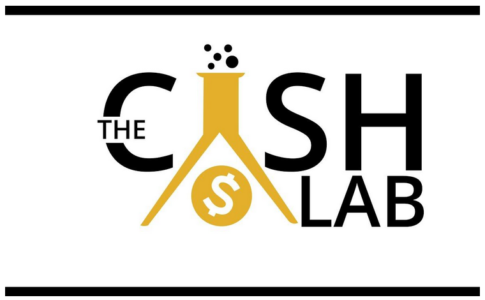This topic can make news headlines any time, but during spring tax season they are very common. In the past, there were frequent reports of the FBI (Federal Bureau of Investigation) and RCMP (Royal Canadian Mounted Police) working with police in India to shut down call centers active in these scams. Police in India recognized that there are many such illegal call centers and they will continue conducting raids. Dozens of these call centers operate in several cities in India and it is believed that some may be operating with police approval since bribery is a common way to avoid scrutiny.
Recovering money will be difficult because some of the payments are processed through offshore intermediaries to insulate the scammers. These intermediaries may be pocketing as much as 40% of the total amount, according to Indian police.
Police are emphasizing that prevention is likely the best approach because criminals will continue to create scamming techniques as long as there are willing victims. People seem to have a substantial fear of the tax man!

Just remember that the IRS (Internal Revenue Service) and CRA (Canada Revenue Agency) will not request payments by gift cards, e-mail, internet link, text, or bitcoin. They won’t demand payment in hours or threaten immediate arrest. When in doubt, simply contact the IRS or CRA directly, or call the police.
Tax season is an opportune time for scammers to impersonate the tax authorities. In this post, we will provide information regarding tax scams via e-mail. This includes what you should recognize and what you should do.
An e-mail or text message is sent from someone pretending to be with the IRS or CRA, claiming:
- that your tax calculation has been completed, and you will receive a tax refund by going through a link and submitting the information
- that you or your company is being accused of participating in tax evasion schemes
- that several discrepancies have been found with your filed taxes which need to be revised
- that you’ve received an e-transfer from the IRS or CRA for what appears to be a tax refund
- that an “investigation” has been started on your IRS or CRA claim
Reject it: How can I protect myself or my loved ones?
- Hang up immediately if there’s anything suspicious or unprofessional about the call – the IRS or CRA will never threaten you with immediate arrest, use abusive language, or send police.
- The IRS or CRA will never request payment by online currency such as Bitcoin, or pre-paid gift cards such as iTunes, Home Depot, etc.
- The IRS and CRA accepted methods of payment are online banking, debit card, credit card, or PayPal through a third-party service provider, and pre-authorized debit. Call IRS or CRA to verify.
- Do not click on any link in an e-mail pretending to be from the IRS or CRA – they will never ask you to click on any link to get a refund or to collect personal or financial information.
- The only time they will send an e-mail that contains links is if a taxpayer calls them to ask for a form or a link to specific information. An IRS or CRA agent will send the information to the taxpayer’s email during the telephone call – this is the ONLY exception to the above rule!
- The IRS or CRA never sends out text messages. Any text message from them is a scam.
- Young people are often the most at risk for this scam, particularly when filing their taxes for the first time. Make sure your family and friends are educated on what tax authorities will and will not ask for during tax season.
Report it: How should I respond?
- If you are not sure if a message is from the IRS or CRA, confirm your tax status with them online through a secure portal such as My Account or by calling them directly.
- Report the scam to your local police if you paid money (this includes purchasing pre-paid credit cards, gift cards, or online currency such as Bitcoin).
- If you sent money or shared financial information, report it to the financial institution used e.g. your bank, Western Union, or MoneyGram.
- If your Social Security or Social Insurance Number has also been stolen, contact authorities immediately

The tax scam has been a topic in our Identity Theft, Fraud, and Scam seminars for several years and we’ve discussed such criminal activity in previous posts on LinkedIn and Facebook. At last, we have some good news! Police announced on Feb. 14, 2020, they had arrested 2 people in Ontario who were involved in the scam. The arrests were made on Feb. 12, 2020, with another arrest warrant issued for an individual who they believe is now in India.
Some interesting facts regarding these crimes and the criminal organizations:
– Most are originating in India; 39 call centers in India have been shut down.
– The same criminal organization was also involved in the Bank Inspector Scam and the Tech Support Scam. Many of you have no doubt received a phone call saying that they are from Windows or Microsoft and have identified a problem with your computer that they can fix if they can have access to your computer online.
– The investigation is continuing to find more “money mules” – people in the U.S. and Canada who are laundering the money and coordinating the transfer of the funds to India.
- Every year, tax scams are popular with criminals. While work by investigators has reduced the dollar losses, there are still criminal organizations and many lone scammers who take advantage of the fact that many taxpayers fear the taxman! Here are some of their tactics:
(Note that these are usually phone calls, but don’t rule out text messages or e-mails.)
1. A message suggesting that your SSN or SIN has been compromised. They know the IRS or CRA has your Number, so they use that to convince you to work with them to fix a “problem”.
2. They tell you there is some outstanding legal action against you, but they assure you they can help resolve the problem.
3. The most common scam in the past has been that you owe back taxes. Victims are often those who may have a spouse who passed away and the scammer can indicate that the spouse owed the taxes. However, they may simply say you owe them and they will have a very convincing story.
4. You are told that your name, or part of your personal information, is linked to a crime. Of course, they will have plans to get you out of the jam, but always at a price.
5. They usually insist you take quick action and threaten that if you don’t, you may be arrested, fined, or deported.
- There may be many variations of those scenarios, based on whatever has worked best for the scammer in the past.
My usual, simple advice: Never provide information, money, or access to money when they contact you – EVER! Do that only after you have independently verified both the legitimacy of the caller and the topic.

Future articles will discuss a variety of identity theft, fraud, and scams, along with ways to recognize them to prevent being victimized. Follow me here on Medium to learn more.
Lloyd Kenney has more than 50 years of experience in business operations, sales, and marketing; he has presented over 230 “Identity Theft, Fraud & Scam” seminars supporting individuals and organizations in reducing their risk of being victimized. Kenney is a Performance Management expert who provides consultations and workshops on performance management. He is also the author of Performance Management: Hiring, coaching, and retaining high-performance, superior employees for small businesses. You can follow Lloyd Kenney on LinkedIn and Facebook.




































